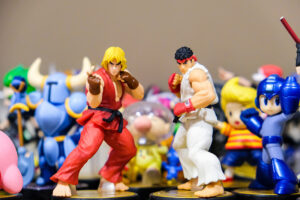Gotta please ’em all: Nintendo and DLC
I was away travelling for six weeks from August to October. While I (mostly) had an incredible time, there was a large part of me that regretted not having brought my Nintendo Switch, if only to potentially score some points with Nintendo UK’s PR team by tweeting a picture of me playing it at Thorong-La Pass.

Since I returned I’ve been playing catch-up with some games that came out while I was gone. The PlatinumGames-developed Astral Chain, for instance, is a hybrid action/police procedural with a complicated action system that doesn’t quite live up to its former titles. Meanwhile, Nintendo’s own remake of Game Boy classic Link’s Awakening has been a little joy, if a little disappointing in how little it actually adds to the title beyond new visuals and physics. Daemon X Machina is a fun action game that feels tailored to those of us missing the Armoured Core franchise.
I’ve also been playing the post-launch downloadable content (DLC) characters for its flagship fighting game Super Smash Brothers Ultimate, which recently took the title of best-selling fighting game of all time. Despite that success, and the undoubted financial contribution that DLC has made to Nintendo’s bottom line, the adage that ‘you can’t please everyone’ has proven true, as each newly announced character has polarised the fanbase in one way or another.
Its most recently released fighter – Terry, a guest character on loan from SNK’s Fatal Fury and King of Fighters franchises – was subject to criticism from a proportion of the fanbase who were a) unhappy that he was a more difficult fighter to use effectively than the rest of the cast, and b) decided that he was an obscure character who had ‘stolen’ a slot from a character who was better known outside of Japan.
Despite that, and to my surprise – given that I’d played the game to death already before I went away – it’s Super Smash Brothers Ultimate that I’ve played the most since I came back. Its smart approach to DLC – by making it absolutely optional yet supremely desirable – demonstrates that despite having made a slow entry into the DLC space Nintendo understands that their consumer base doesn’t owe them anything (a lesson developers like Bethesda should probably have learned by now).
That said, it was a hard-won lesson. Originally Nintendo locked some content behind its amiibo toys (see picture). This has the dual disadvantages of costing far more than most DLC, and being limited by how much physical stock could be found in stores as well. Notoriously, amiibo sell out far faster than they can be produced.
As regulators begin to crack down on lootbox mechanics, since it is effectively gambling, it’s worth remembering that the best performing games of last year were those that eschewed lootboxes entirely. The most highly awarded ones, like Devil May Cry V, were in fact seen as a return to the glory days when games could be released complete, and DLC was seen as a valuable add-on rather than necessary to complete a released game.
enquiries@trippassociates.co.uk
Martin Tripp Associates is a specialist executive search consultancy. We work globally across the media, information, technology and entertainment sectors, and with some of the world’s biggest brands on senior communications, digital, marketing and technology roles. Feel free to contact us to discuss.